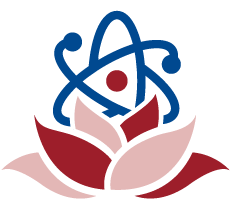| antigen of a pathogen ནད་སྲིན་ཕྲ་མོའི་འགོག་ཟུངས་སྐྱེད་རྫས། | biol. | |
| antigen འགོག་ཟུངས་སྐྱེད་རྫས། | biol. A harmful substance that causes the body to produce antibodies. | ལུས་པོས་འགོག་གཟུགས་སྐྱེད་སྐྲུན་བྱེད་པ་ལ་རྐྱེན་སློང་བྱེད་མཁན་གྱི་གནོད་འཚེ་ཅན་གྱི་རྫས་ཤིག |
| antifreeze འཁྱགས་འགོག | phys. A liquid used in the radiator of an internal-combustion engine to lower the freezing point of the cooling medium. | ནང་འབར་འཕྲུལ་འཁོར་གྱི་གྲང་བཟོ་ཡོ་ཆས་ནང་གི་གྲང་བཟོ་གཤེར་ཁུའི་འཁྱགས་ཚད་ཇེ་དམའ་རུ་གཏོང་ཕྱིར་བེད་སྤྱོད་བྱེད་པའི་གཤེར་གཟུགས་ཤིག |
| antielectron ལྡོག་མའི་གློག་རྡུལ། | phys. Subatomic particle having the same mass as an electron but with an electric charge of +1. | གློག་རྡུལ་ཞིག་དང་འདྲ་བའི་གདོས་ཚད་ཡོད་མོད་གློག་ཁུར་ནི་ཕོ་ཁུར་གཅིག་ཅན་ཡིན་པའི་ཕྲ་རྡུལ་ཞིག |
| Antidiuretic hormone གཅིན་ཟློག་རྨེན་རྫས། | Biol. | (གཅིན་པ་སླ་པོ་འགོག་པའམ་ཟློག་པར་བྱེད་པའི་རྨེན་རྫས།) |
| antidepressant ཡིད་མུག་འགོག་བྱེད། | chem. Any drug that prevents or relieves depression or stimulates the mood of a depressive patient. | ཡིད་མུག་གི་ནད་འགོག་པའམ་སངས་བར་བྱེད་པའམ། ཡང་ན། ཡིད་མུག་ཅན་གྱི་སེམས་ཁམས་ལ་སྐུལ་རྐྱེན་སྤྲོད་པའི་སྨན་རྫས་གང་རུང་རུང་ཞིག། |
| anticorrelations གོ་ལྡོག་ལྟོས་འབྲེལ། | phil. An inverse correlation | གོ་རིམ་ལྡོག་པའི་ལྟོས་འབྲེལ་ཞིག |
| Anticodon རིགས་རྫས་ལྡོག་བརྡ། | biol. | |
| anticipation སྔུན་བསུ། | neurosci. The action of anticipating something; expectation or prediction. | བྱ་དངོས་ཤིག་ལ་རེ་ཚོད་བྱེད་པའི་བྱ་བ་སྟེ། རེ་སྒུག་གམ་སྔོན་དཔག། |
| antibody-mediated immunity response འགོག་གཟུགས་བརྒྱུད་པའི་ནད་འགོག་ཡ་ལན། | biol. | |
| antibody-mediated immunity འགོག་གཟུགས་བརྒྱུད་པའི་ནད་འགོག་རང་བཞིན། | biol. Immunity conferred to an individual through the activity of B cells and circulating antibodies. | སྦི་ཕྲ་ཕུང་གི་བྱེད་སྒོ་དང་འཁོར་སྐྱོད་བྱེད་ཀྱིན་པའི་འགོག་གཟུགས་བརྒྱུད་ནས་སྲོག་ཆགས་ཤིག་ལ་ནད་འགོག་མ་ལག་སྩོལ་བ་ལ་ཟེར། |
| antibody འགོག་གཟུགས། | biol. A protein produced in the blood or tissues in response to the presence of a specific foreign antigen. Antibodies provide immunity against certain microorganisms and toxins by binding with them and often by deactivating them. | རྒྱུས་མེད་ཀྱི་འགོག་ཟུངས་སྐྱེད་རྫས་བྱེ་བྲག་པ་ཞིག་མངོན་ཡོང་བ་ལ་ཡ་ལན་གྱི་ཚུལ་དུ་ཕུང་གྲུབ་ཀྱི་ནང་ངམ་ཁྲག་གི་ནང་དུ་སྐྱེད་སྐྲུན་བྱས་པའི་སྤྲི་རྫས་ཤིག འགོག་གཟུགས་ཀྱིས་ཕྲ་དངོས་དང་སྲིན་དུག་ཁག་ཅིག་ལ་འཆིང་སྦྱོར་བྱས་ཏེ་དུས་སྐབས་ཕལ་ཆེ་བར་དེ་དག་ནུས་མེད་བཟོ་བའི་སྒོ་ནས་ནད་འགོག་ནུས་པ་མཁོ་སྤྲོད་བྱེད། |
| antibiotic resistance གཉན་འཇོམས་འགོག་ནུས། | biol. The ability of bacteria and other microorganisms to resist the effects of an antibiotic to which they were once sensitive. Antibiotic resistance is a major concern of overuse of antibiotics. Also known as drug resistance. | སྲིན་བུ་དང་སྐྱེ་དངོས་ཕྲ་མོ་གཞན་གྱིས་སྔོན་ཆད་རང་ཉིད་ཚོར་བ་སྐྱེན་པོ་ཡོད་སའི་གཉན་འཇོམས་སྨན་གྱི་ཤུགས་རྐྱེན་ལ་གདོང་ལེན་བྱེད་པའི་ནུས་པ་ལ་གོ གཉན་འཇོམས་འགོག་ནུས་ནི་གཉན་འཇོམས་སྨན་ཚད་ལས་བརྒལ་བ་བེད་སྤྱོད་བཏང་བའི་གནད་དོན་གལ་ཆེན་ཞིག་ཡིན་པ་དང་། འདི་ལ་སྨན་རྫས་འགོག་ནུས་ཞེས་ཀྱང་བརྗོད། |
| antibiotic drug གཉན་འཇོམས་སྨན། | chem. A very extensive range of drugs able to kill or prevent reproduction of bacteria in the body without killing the patient. | ནད་པ་ལ་སྲོག་སྐྱོན་མི་བཟོ་བའི་སྒོ་ནས་ལུས་པོའི་ནང་གི་སྲིན་བུའི་འཚར་སྐྱེ་འགོག་ཐུབ་པའམ་སྲིན་བུ་གསོད་ཐུབ་པའི་སྨན་རྫས་སྣ་མང་ཞིག་ལ་གོ |
| antibiotic གཉན་འཇོམས། | biol. A biochemical substance, often derived from a microorganism, used to combat infection by other microorganisms, especially bacteria. Penicillin is the most widely used antibiotic. | སྲིན་བུ་ལྟ་བུའི་སྐྱེ་དངོས་ཕྲ་མོ་གཞན་གྱིས་རྐྱེན་བྱས་པའི་གཉན་ཁ་ལ་འཐབ་རྒོལ་བྱེད་ཕྱིར་སྤྱོད་པའི་སྐྱེ་དངོས་ཕྲ་མོ་ནས་བྱུང་བའི་སྐྱེ་དངོས་རྫས་སྦྱོར་གྱི་རྫས་ཤིག པེ་ནི་སི་ལིན་ནི་ཡོངས་གྲགས་སུ་རྒྱ་ཆེར་སྤྱོད་པའི་གཉན་འཇོམས་ཤིག་རེད། |
